For the past couple of months the public has been able to watch a group of MPs loom down their webcams as they question the Government’s response to Covid-19.
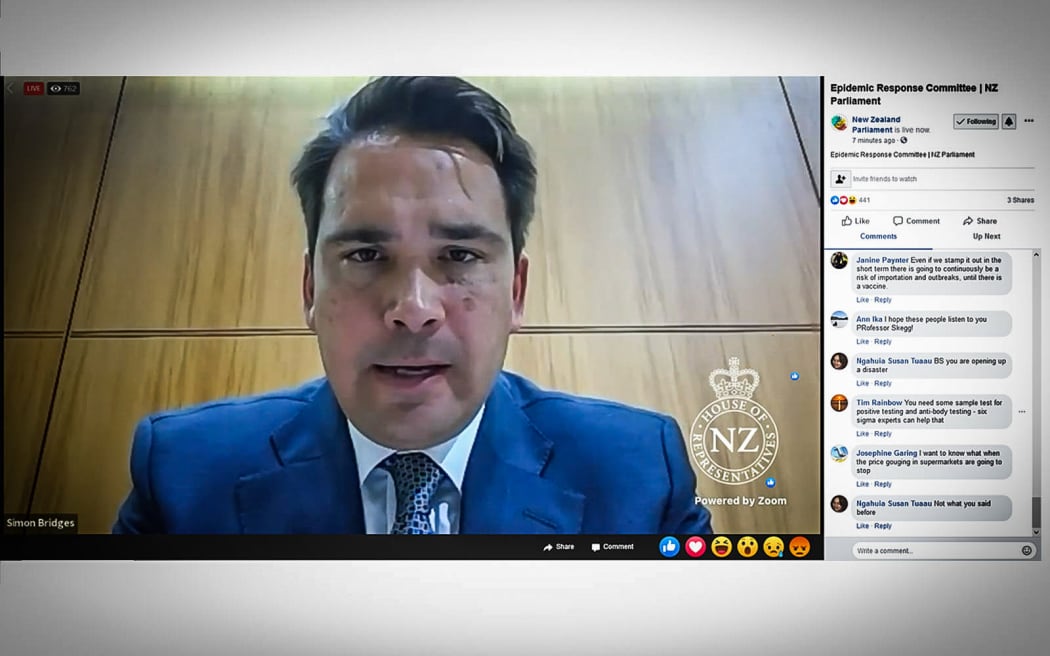
Screenshot of Simon Bridges chairing the Epidemic Response Committee Photo: Parliament
The group is officially called the Epidemic Response Committee and now there's a note on the Government's to-do list, formally called the Order Paper, to disestablish it.
The chair of the Committee is National MP Simon Bridges who said at the beginning that its role is to provide constructive criticism of the Government’s Covid-19 response with the aim of improving the response nationally.
"The way I intend to run this, as chair of the committee, members—and for you at home who are watching—is like a parliamentary review; that is, with brief introductory remarks by our participants and then questioning," he said.
"Everyone will get a chance on the committee to ask the questions that they want to. There will be a preference for Opposition members because the committee has been set up with an Opposition majority and, of course, Government members have much greater access to their ministerial colleagues and Government decision making."
Before the committee started live-streaming its Zoom meetings to a captive audience it had to be officially set up by Parliament.
There are 12 subject committees on topics like finance, health, education, and Maori affairs but extra ones can be set up for particular purposes.
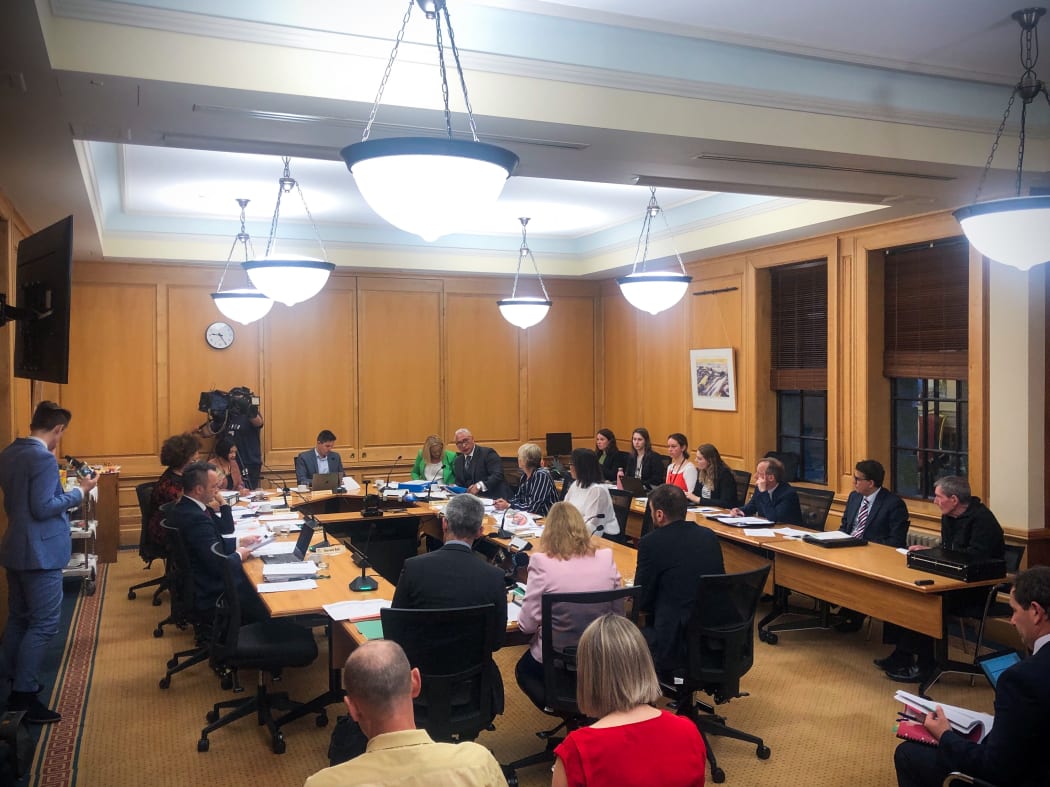
The Social Services and Community Select Committee meeting in a time before Covid-19 enforced physical distancing rules. Photo: VNP / Daniela Maoate-Cox
Each committee has members from different parties and their job is to look more closely at legislation in search of flaws or areas to improve, they can conduct inquiries into topics, consider petitions and hear from members of the public.
To set up this committee a motion had to be moved meaning one of the MPs had to put the idea to all the other MPs and ask what they thought.
In this case the set-up of the Committee had been agreed to by MPs before they turned up in the debating chamber on the 25 March so the vote was more of a formality but also an opportunity for MPs to acknowledge the role it would play while Parliament adjourned for the alert level 4 lock-down.
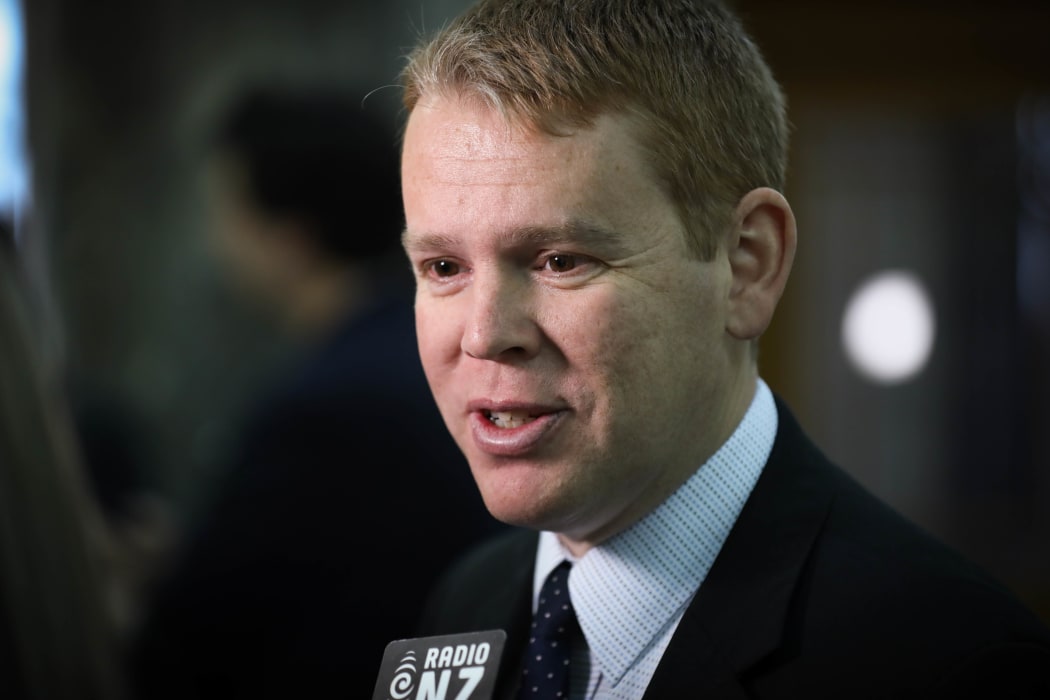
Leader of the House Chris Hipkins is in charge of ordering what the MPs will work on each sitting day Photo: VNP / Daniela Maoate-Cox
"The motion that's before the House today puts in place a mechanism, whereby the Opposition in particular, will be able to continue to scrutinise the Government and the actions that the Government is taking, even though the House will not be sitting," said Leader of the House Chris Hipkins.
"A special select committee is being established. It will have an Opposition majority, which recognises these extraordinary circumstances we are in."
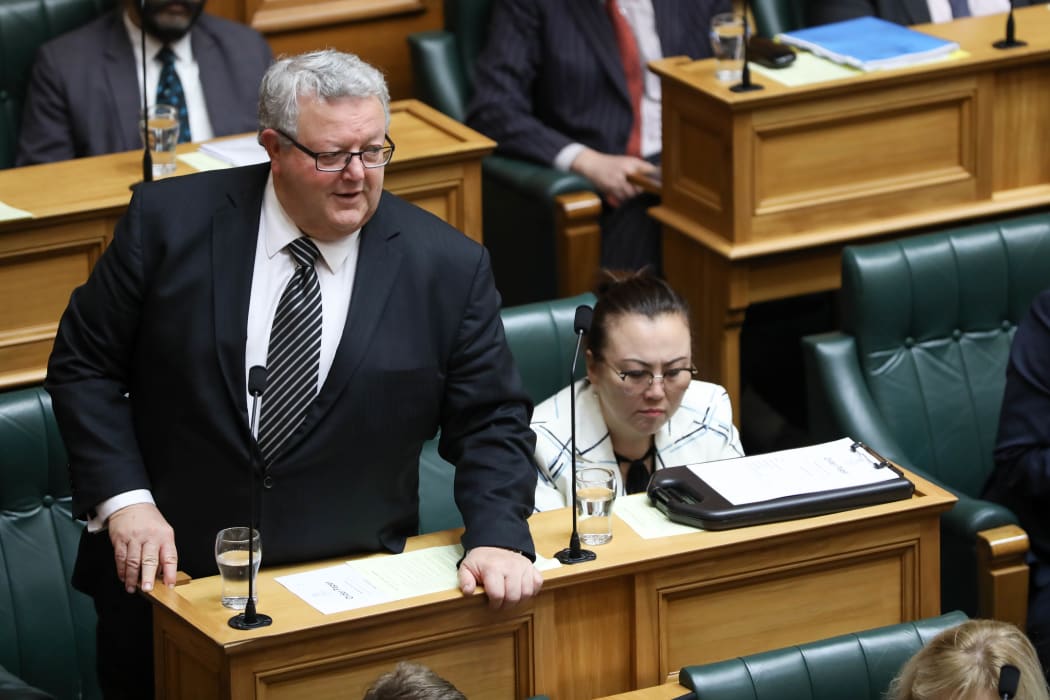
Shadow Leader of the House Gerry Brownlee Photo: VNP / Daniela Maoate-Cox
It was one of those times where all the parties agreed and National's shadow Leader of the House Gerry Brownlee said it showed the Government recognised its legitimacy comes from Parliament.
"This select committee fills a void that would normally be occupied by question time or, perhaps, written questions or something else, he said,
"It will, in my opinion, be a little stronger than both of those provisions, but with a great deal of cooperation, that's been talked about by everybody across the House today, it should work in the best interests of all New Zealanders."
Lockdown committee
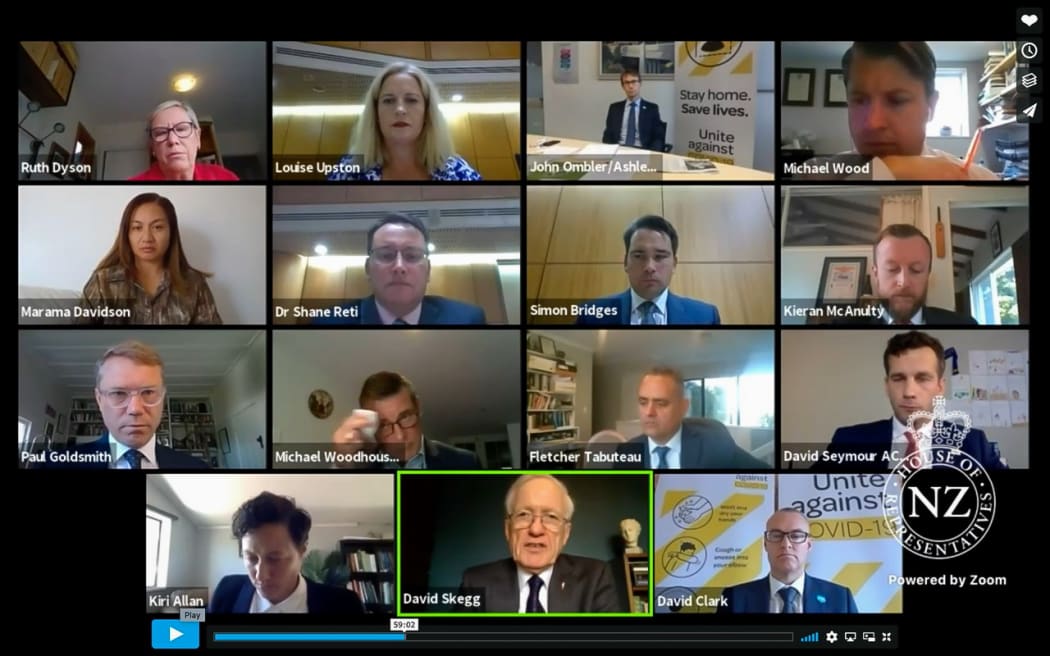
Screenshot of the Epidemic Response Committee listening to David Skegg Photo: Parliament
Just under a week after it was officially established the Committee met over video conference and livestreamed its hearings to a country in lockdown.
Each day had a theme like health, the economy, tourism, business or media and the Committee would often invite an expert to brief them first like Otago University Professor and epidemiologist David Skegg who was a regular submitter.
The Committee has the power to summon people but most of the invites it sent were accepted without need for the official power and over the five-week lockdown the MPs were able to question the Ministers on the Government's Covid-19 response as it happened.
-
Epidemic Response Committee meets with religious leaders ahead of gatherings decision
-
Epidemic Response Committee discusses education sector at meeting
-
'Unacceptable' that Treasury officials failed to front at Epidemic Response meeting - Bridges
It also heard from officials like Director General of Health Ashley Bloomfield or the Police Commissioner at the time, Mike Bush and experts like Australia's Chief Medical Officer Brendan Murphy.
Select committees are a main point of contact for members of the public to tell MPs what they think and the committee heard from a range of people including business owners, landlords, tourism operators, iwi representatives, and charitable organisations.
This is one of the main jobs of a select committee - to hear from individuals and figure out how to use what they hear.
This can be by suggesting changes to legislation or conducting an inquiry to find out if the issue needs more Parliamentary attention but MPs often point out submissions inform, rather than direct their decisions.
Occasionally MPs on the committee take what submitters tell them and ask ministers to respond.
When the alert level was changed to three MPs, in limited numbers, returned to Parliament House in Wellington to resume their work.
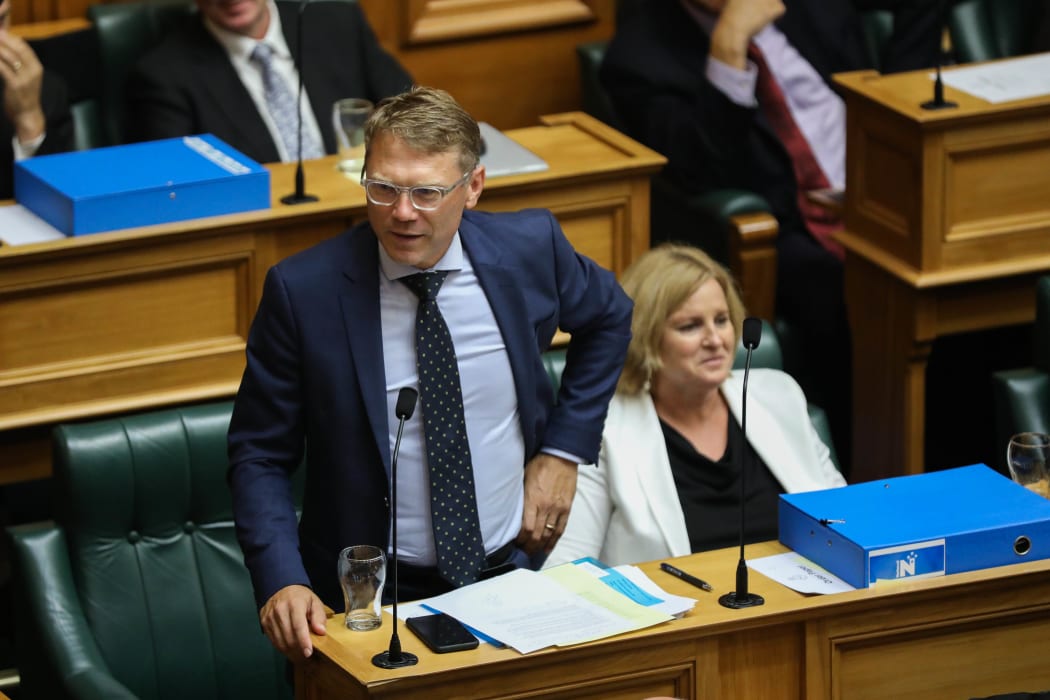
National MP Paul Goldsmith Photo: VNP / Daniela Maoate-Cox
During the first question time for level three on the 28th of April National MP Paul Goldsmith took some of what submitters told the committee and asked Minister of Finance Grant Robertson for a reply:
Hon Paul Goldsmith: Does it concern him that Rotorua bar operator Reg Hennessy at the Epidemic Response Committee this morning predicted that there will be a "huge shit fight" over rents as small businesses struggle to cope with substantial ongoing costs but zero revenue?
Hon Grant Robertson: We're well aware that for many small businesses, having no revenue has been a huge struggle. That's what the wage subsidy scheme was about, and it's why it was paid as a 12-week upfront lump sum, in order for businesses to be able to plan. We continue to work with small businesses on what else we can do.
The committee has a few items of official business before it. One is an inquiry into the Government's Covid-19 response. This allows the committee to question various people and compile the information into a report but there's no requirement for Parliament to do anything the committee suggests.
It's also looking at two pieces of Covid-19 related legislation:
And four petitions on topics including rent subsidies, wages for essential workers and caring for front line nurses.
Disestablishing the committee
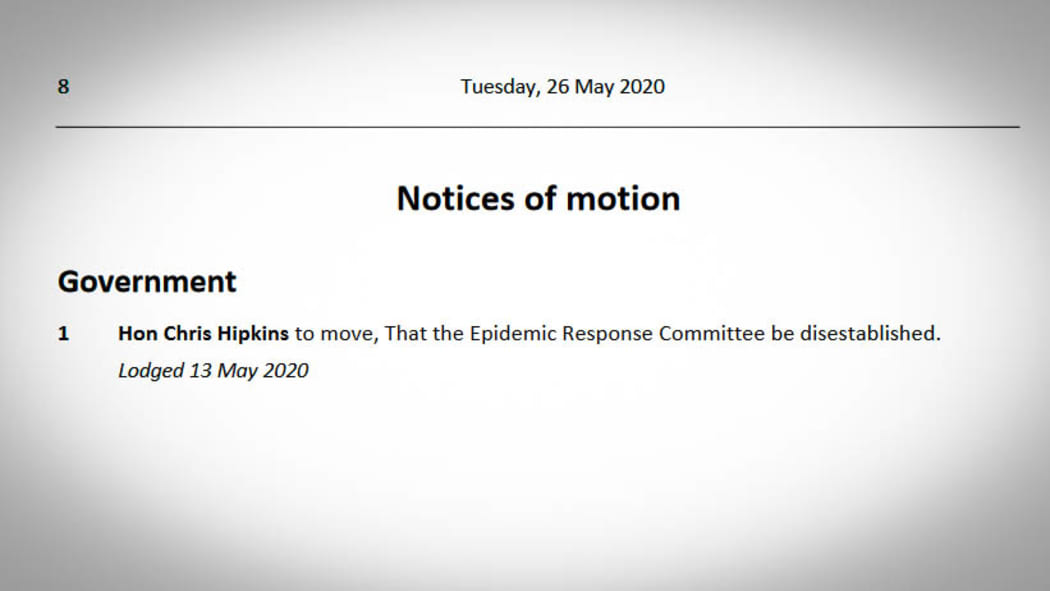
Notice of motion is where proposals are listed on the Order Paper. It gives MPs time to think about how they want to vote if or when it comes up in the House. Photo: VNP / Daniela Maoate-Cox
The Epidemic Response Committee was set up for a particular purpose, to scrutinise the Government’s response to Covid-19 while Parliament was unable to meet in its usual way.
It was never meant to be permanent and as more of Parliament’s normal functions resume the need for the committee is changing.
An email to the Committee from the Leader of the House Chris Hipkins’ office was released on social media by the committee’s chair Simon Bridges which said Ministers would decline to appear before the Epidemic Committee to talk about the Budget.
The usual Budget process includes Ministers fronting up to the relevant select committee to discuss funding for their areas and Mr Hipkins' office said this pre-exisitng process for scrutiny would keep Ministers accountable.
Now on the Government’s to-do list (Order Paper) is a motion from the Leader of the House Chris Hipkins to disestablish the committee.
A motion is a suggestion put before the other MPs in the House to vote on and Mr Hipkins is in charge of when this particular motion is put to a vote.
The Committee isn't scheduled for any upcoming meetings but past hearings can be watched online through Parliament's website.


